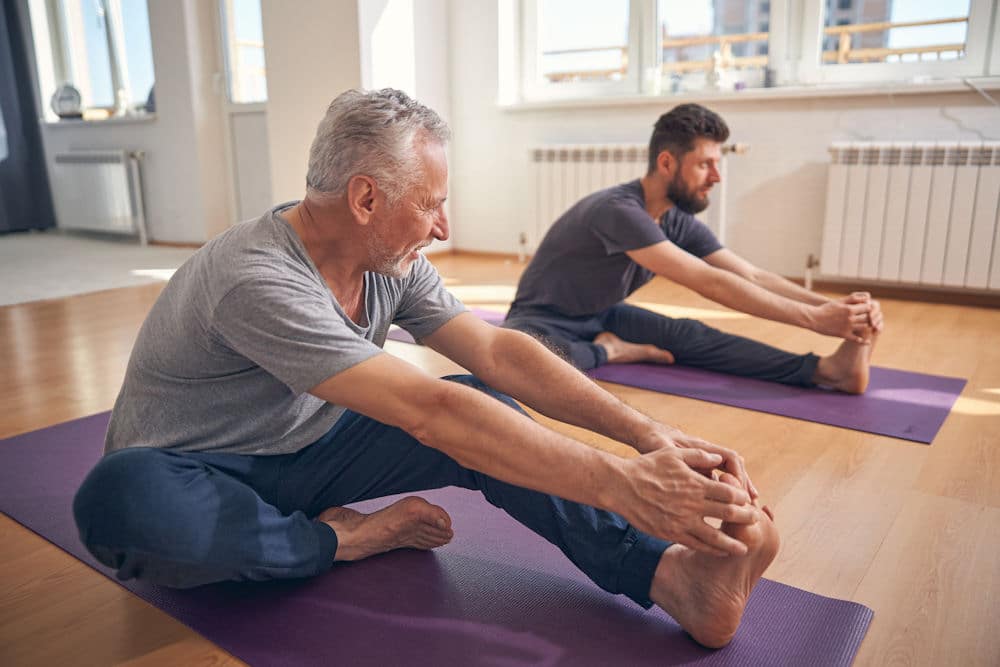Self-care is dedicated to taking a break from the stresses of life and setting aside time to care for yourselves. This is especially important, as many individuals neglect their overall well-being during active addiction. To achieve long-term success, self-care in recovery should be practiced regularly.
Self-care can mean different things to different people but generally includes practices that promote physical and mental health. While many people treat self-care as an occasional practice that includes things like bubble baths, face masks, and massages, self-care goes far beyond these relaxing practices.
Daily and practical self-care activities can, instead, include practicing good sleep hygiene, engaging in physical activity, eating a balanced diet, and any other practice that lends to one’s recovery.
At Eagle Creek Recovery, we want individuals who are struggling with addiction and recovery to have the tools and information they need to heal from drug or alcohol addiction. Today, we’ll be breaking down self-care in recovery practices that go beyond the basics to set you up for a successful recovery.
Why is Self-Care Important in Recovery?
Self-care is important in recovery because it is a necessary tool for maintaining physical and mental health. When your mental and physical health is taken care of, it is more likely that you will be better able to cope with cravings, triggers, and other issues that may arise in recovery. For example, if you are sleep deprived or deprived of proper nutrition, it will be difficult to manage issues that occur during your recovery.
Addiction affects the brain in multiple ways, including changes in thought patterns and behaviors. To effectively manage these changes and promote a successful recovery, individuals must practice self-care regularly. Self-care can also help reduce stress levels which can be especially helpful when navigating through difficult times of recovery.
Additionally, self-care can help to instill a sense of pride in yourself and your recovery journey. The more you practice self-care regularly, the more likely it is that you will experience positive benefits such as increased energy levels, improved sleep quality, and an overall sense of well-being.
Self-Care in Recovery and Relapse
Self-care in recovery is an essential part of preventing relapse. Stress is often a major factor in cases of relapse. While there are ways to prevent stressful situations from happening, there is no way to eliminate them.
Instead, nurturing your physical and mental health can help reduce the likelihood that you will turn to drugs and alcohol when stress arises. Self-care activities such as yoga, meditation, and even simply taking a walk can help to reduce stress levels. Additionally, practicing self-care can provide an outlet for individuals who may be feeling overwhelmed or anxious.
Overall, self-care practices should be used in combination with other relapse prevention techniques such as attending support groups or therapy sessions. Self-care should never be seen as a replacement for relapse prevention activities, but rather as an addition to them.
How to Practice Self-Care in Addiction Recovery
The types of self-care practices that are helpful in recovery vary from person to person, depending on their individual needs and goals. However, some general practices can be beneficial for most individuals who are recovering from addiction:
Getting enough sleep is essential for anyone. For people in recovery, being well-rested is necessary to face each day and its particular challenges. Overall, good sleep hygiene can help reduce cravings and withdrawal symptoms in early recovery.
To ensure quality rest each night, it is important to maintain a consistent sleep schedule (even on weekends). Additionally, individuals should avoid caffeine and other stimulants late in the day, limit screen time before bed, avoid eating big meals close to bedtime, and keep their bedrooms dark and cool.
Nutrition is important for everyone but it is particularly important for individuals in recovery. Eating a balanced diet can help to provide fuel to get through the day as well as promote a healthy body and mind. Eating regular meals and snacks throughout the day is important as it can help to stabilize energy levels and blood sugar.
In addition, individuals should focus on eating foods that are high in protein, fiber, vitamins, minerals, and healthy fats. These nutrient-rich foods will provide the necessary fuel for individuals in recovery to maintain their physical and mental health.
Physical activity is important for anyone, but it is especially beneficial for individuals recovering from addiction. Exercise can reduce stress levels, boost endorphins, and help to clear the mind of negative thoughts. Additionally, exercise can be a great tool to manage cravings and withdrawal symptoms.
Individuals must tailor their physical activity to their individual needs. This could include anything from taking a walk in nature, doing yoga, or engaging in high-intensity interval training. Through trial and error, individuals can find what works best for them and incorporate it into their self-care routine.
Setting healthy boundaries is important for anyone’s self-care practice, but it is particularly important in addiction recovery. Having clear boundaries can help individuals to protect themselves from triggers and other issues that may arise during their recovery journey. Additionally, having personal boundaries allows individuals to prioritize their own needs and take care of themselves first.
Often, when someone is in recovery, their relationships change. It’s likely that the people you used to spend a lot of time with either abused substances with you or enabled your drug or alcohol use. It is important to practice self-care in recovery by setting boundaries with these individuals and creating distance if needed.
Finally, it is important to make time for yourself. This can include activities that promote relaxation such as reading a book, taking a break from social media, or listening to music. Additionally, engaging in creative activities such as drawing or writing can be beneficial for stress management and overall mental health.
While being around others can be a great source of comfort, it can also be a drain on our emotional and physical energy. This is especially true for those who have a household or children to look after. Making time for yourself is an important part of self-care in recovery and can help to reduce stress levels.
Recovery is complicated and many complex feelings can arise during the healing process. When this happens, it’s important to practice self-care by finding healthy ways to manage and express these feelings.
This could include talking with a therapist, journaling, or engaging in expressive activities such as art or music. Additionally, individuals should be aware of their own triggers and warning signs that may lead to unhealthy coping mechanisms such as substance abuse or other forms of self-harm.
Things to Remember When Practicing Self-Care in Recovery
Self-care in recovery may feel like a daunting task. It can be difficult to remember to take care of yourself during addiction recovery, but it is an essential part of the process. When practicing self-care in recovery, the following is important to remember:
It is important to remember that self-care is an ongoing process. It takes time and patience to develop a healthy routine and establish habits that will help you on your recovery journey.
Many individuals in recovery may feel guilty for taking time to practice self-care. However, it is important to remember that practicing self-care is not selfish – it is necessary for your overall mental and physical well-being.
Every individual has different needs when it comes to their self-care practices. It is important to tailor your self-care practices to suit your individual needs. This could include anything from getting more sleep to engaging in creative activities.
Spiritual self-care can cover a range of spiritual and holistic practices and is hailed as one of the most important types of self-care. These practices could include connecting with a higher power, but also mindfulness, yoga, or meditation. Practicing spiritual self-care can help individuals to stay connected to themselves and the world around them which is important for their mental and physical health.
Everyone’s emotional needs are different. You may be dealing with a range of emotions that are unique to your particular situation. It is important to take the time to identify what your emotional needs are and how you can meet them through self-care. This could include reaching out for support or engaging in expressive activities such as art or music.
When Self-Care isn’t Enough: Recovery with Eagle Creek
At Eagle Creek Recovery, we understand how challenging addiction can be and the importance of going above and beyond the basics to create a successful recovery journey. We hope that today’s blog has provided helpful information on how you can practice self-care in addiction recovery.
If you or someone you know is struggling with addiction and would like more information, please do not hesitate to reach out. We are here to help every step of the way.

Clinical Director
Kendall Maloof is the clinical director at Eagle Creek Ranch Recovery. She is a licensed marriage and family therapist and has held multiple leadership roles before settling here at Eagle Creek. Kendall received her master’s degree in marriage and family therapy from the Chicago School of Professional Psychology in 2016. Her career in mental and behavioral health began in 2014 when she took up internships in both the nonprofit and for profit sectors. She interned at multiple reputable companies, such as The Living Success Center and 449 Recovery in California.
In 2019, Kendall became the clinical director of Sunsets Recovery for Woman, a dual diagnosis program in southern California. Kendall is a natural leader. She has an incredible ability to problem solve and stay calm in any situation. Kendall never fails to show up when she is needed, and her calm demeanor makes her team and clients feel at ease. Eagle Creek Ranch Recovery is proud to have Kendall as our clinical director.




